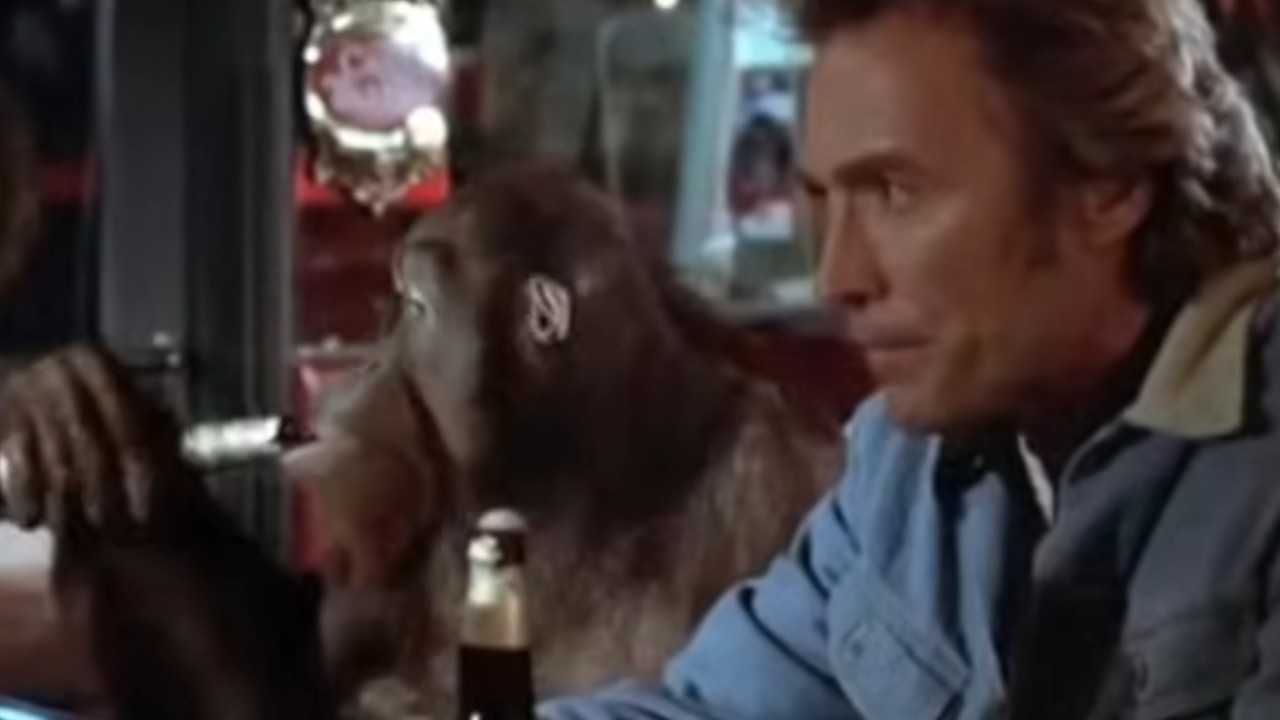Adapting Stephen King's Mr. Harrigan's Phone: The 2022 Movie Swings For Coming-Of-Age And Horror, And It Misses Both
The fourth Stephen King adaptation from Netflix.
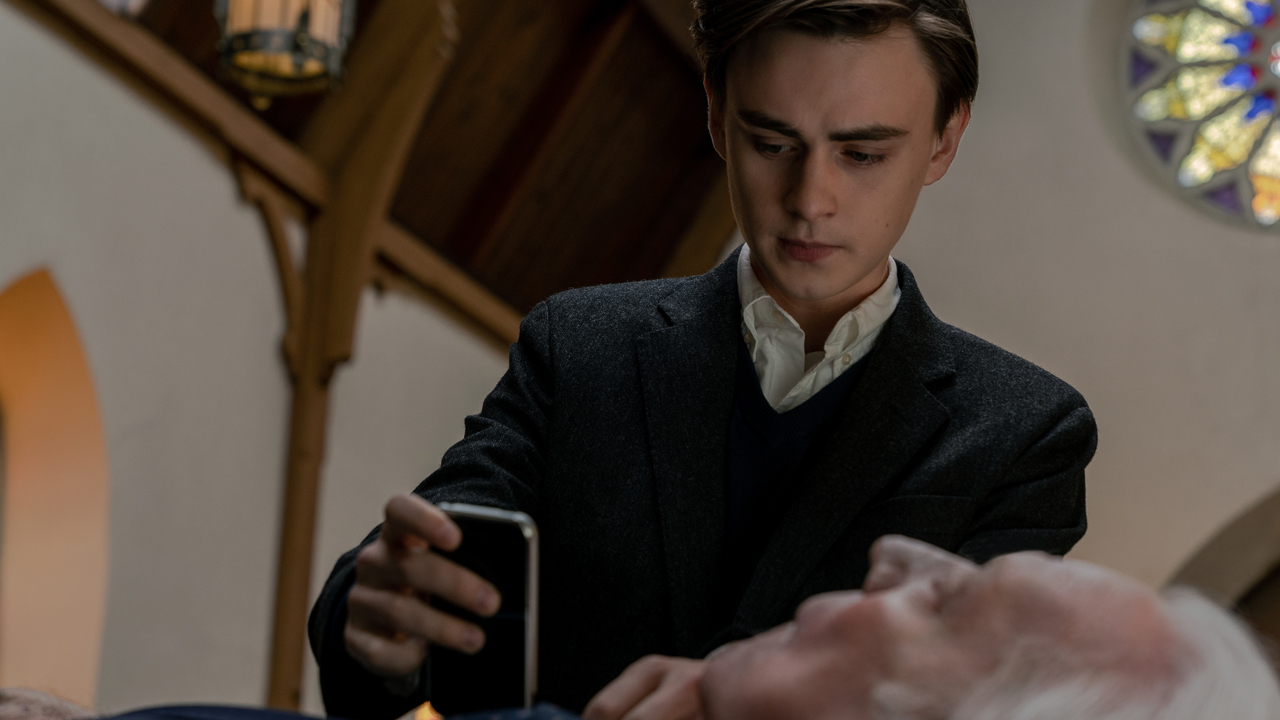
Your Daily Blend of Entertainment News
You are now subscribed
Your newsletter sign-up was successful
The continued heat that surrounds the name Stephen King in the film and television industries nearly a half-century after the publication of Carrie can be summed up by Hollywood’s reaction to the author’s most recent novella collection. In May 2020, King published the book If It Bleeds, featuring four original, never-published-before stories, and it was only about two months that the tome hit store shelves for three of them to get optioned for adaptation.
In July 2020, Deadline published a piece about movie deals that were being made for the latest Stephen King material, and many high profile names got into the bidding. Darren Aronofsky’s production company Protozoa took control of “The Life Of Chuck” (a surreal, in-reverse story of a man’s death); Ben Stiller is making plans to star in and direct a feature version of “Rat” (the tale of a writer’s block-plagued author who makes a Faustian bargain for inspiration), and a combination of Netflix, Blumhouse Productions, and producer Ryan Murphy went after “Mr. Harrigan’s Phone” (a tech-centric, spooky coming-of-age story).
To date, we’re still waiting for the film versions of “The Life Of Chuck” and “Rat” to move forward, but “Mr. Harrigan’s Phone” moved like lightning through the stages of production, despite everything that was happening at the time with COVID-19. John Lee Hancock was attached to write and direct as the original deal was being made, and the production lured two Stephen King veteran actors to star – IT’s Jaeden Martell and Salem’s Lot’s Donald Sutherland – right before the start of production in Connecticut 17 months later.
Mr. Harrigan’s Phone was a well-oiled machine going through the production stages, and Netflix – a veteran in the realm of Stephen King adaptations, having produced and released Mike Flanagan’s Gerald’s Game, Zak Hilditch’s 1922 and Vincenzo Natali’s In The Tall Grass – set the project for a prime spooky season release date on October 5, 2022. There were all kinds of reasons to be excited, including King himself hyping the quality of the film two months prior to release… but the finished result in truth didn’t prove to justify that anticipation.
While Mr. Harrigan’s Phone stuck around in the Netflix Top 10 Movies for a bit after its release, the film also got a middling response from critics and demonstrated that not everything that Stephen King puts down on the page is proper fodder for Hollywood. Why that’s the case in this instance is the subject of this week’s Adapting Stephen King.
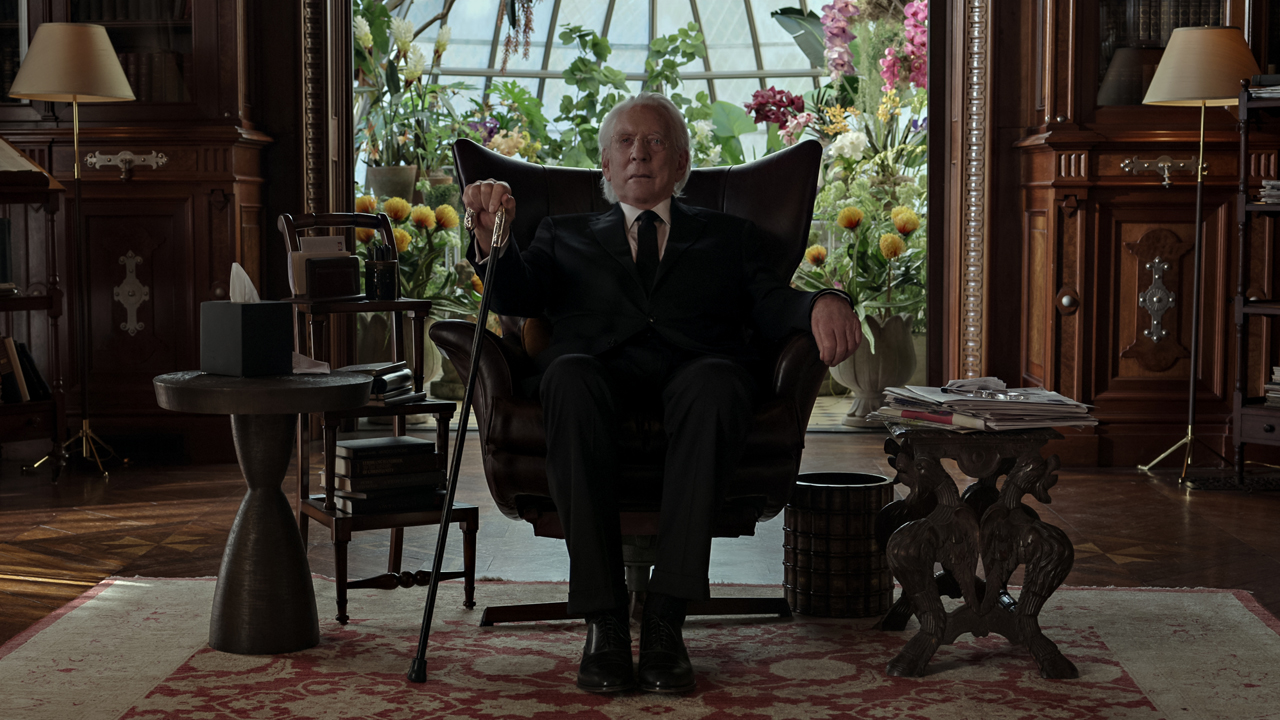
What “Mr. Harrigan's Phone” Is About
Whenever one loses an important person in their life, the same desire frequently comes to mind: “I wish I could just talk to them one more time.” It’s a reaction that comes from the pain of not having the ability to say goodbye, and it weighs on one heavily. That being said, horror fiction history has long told us about the consequences that can arise when communicating with the dead, and it’s in that particular subgenre in which “Mr. Harrigan’s Phone” rests.
In the “Author’s Note” section of If It Bleeds, Stephen King explains that the origins for the novella came from two inspirations in his life: one pop culture-centric, and one personal. In terms of the former, the beloved author attributes the idea of a phone belonging to the dead to an old movie or television show he saw when he was younger, though he can’t quite remember what it was called or how he watched. What stuck with him was the subject matter. Writes King,
Your Daily Blend of Entertainment News
As a kid, I may have seen some movie… about a guy so afraid of being buried alive that he had a phone put in his crypt. Or it might have been an episode of Alfred Hitchcock Presents. Anyway, the idea resonated in my over-imaginative child’s mind: the thought of a phone ringing in a place of the dead.
This simple concept was paired in King’s mind with an upsetting memory from decades later. After having lost a friend, the writer made the decision to call the deceased’s person’s voicemail, and instead of being happy to hear the recorded message, he found himself frightened:
Years later, after a close friend died unexpectedly, I called his cell phone just to hear his voice one more time. Instead of comforting me, it gave me the creeps. I never did it again, but that call, added to the childhood memory of that movie or TV show, was the seed for ‘Mr. Harrigan’s Phone.’
Stephen King made the call to write the novella as a period piece – pinned to the time when smart phones began taking over the world – and as a research tool, he had his “IT guy” purchase a first-gen iPhone for him to bring himself back to that period of modern history. The device, permanently plugged in due to a broken on/off switch, was kept nearby as he penned the story about adolescence, technology, and possibility of life after death.
The protagonist in “Mr. Harrigan’s Phone” is a middle-schooler named Craig who lives in the incredibly small town of Harlow, Maine – a village not too far from Castle Rock. He is a neighbor of notorious aging millionaire John Harrigan, and for years he is paid to go over to Harrigan’s house multiple times a week to read the man classic literature. The two of them end up becoming friends, and when Craig wins $3,000 from a scratch-off lottery ticket that Harrigan gives him as a present, he ends up using some of the money to purchase his pal/employer a brand new iPhone.
When Harrigan dies sometime later, Craig ends up putting the man’s smart phone in his coffin with him, and the pre-teen calls and texts the device whenever he is experiencing times of distress. To Craig’s shock, these communications end up resulting in horrible things happening, and he has to wonder if Harrigan is responsible from beyond the grave.
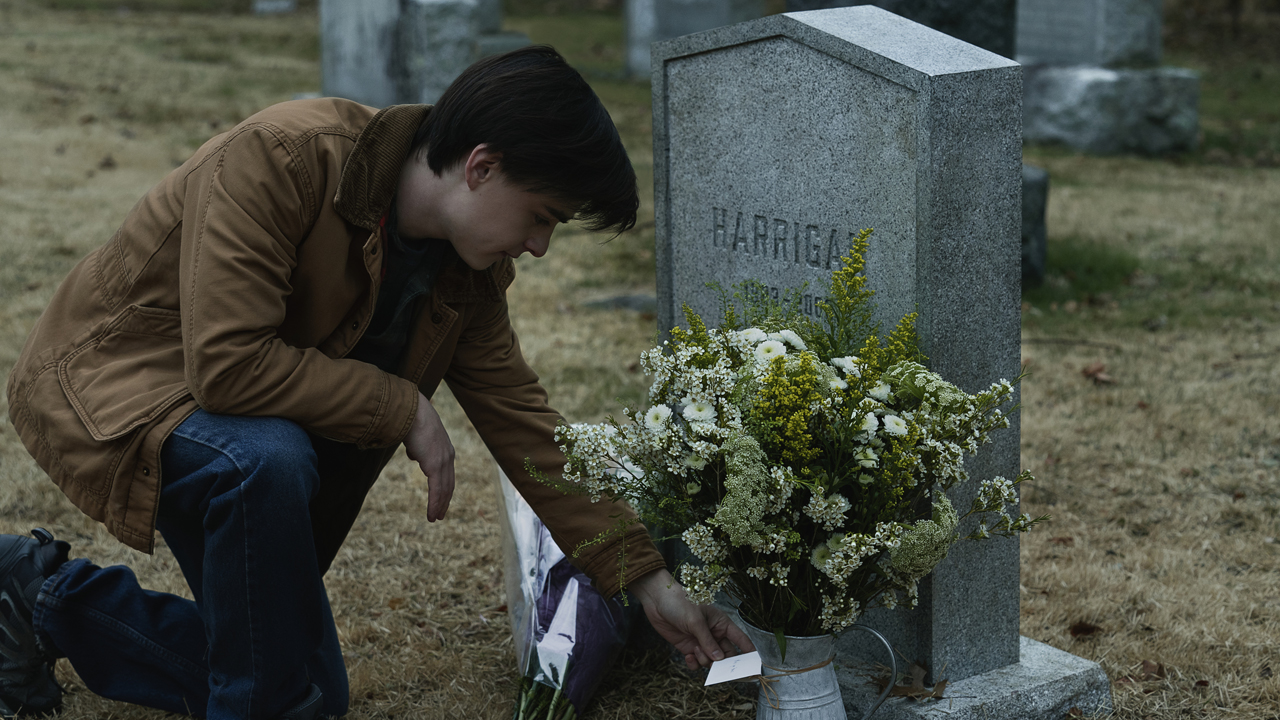
How John Lee Hancock’s Mr. Harrigan's Phone Differs From Stephen King’s Novella
Arguably to a fault (more on that in a bit), Mr. Harrigan’s Phone stays very faithful to the novella. Every major plot development that unfolds comes straight from Stephen King, and the characters are all familiar. The big differences between the film and the text come in three forms: time compression, a touch of censorship, and some minor, detail-centric alterations.
When I say “time compression,” what I mean is that events occur on a much quicker timeline in the movie compared to the book. In the adaptation, we see Craig grow and get older, but it doesn’t quite run parallel to how things play out in King’s version. A simple example of this is that Craig gets his own first iPhone and his winning lottery ticket from Mr. Harrigan on the same Christmas holiday; in the novella, he gets the iPhone for Christmas, and the scratcher that earns him $3,000 is a Valentine’s Day gift.
More significant than this, Craig is a lot younger when Mr. Harrigan dies. In the movie he is shown as being in high school, but in the source material he is still in middle school.
On the censorship front, it’s nothing egregious – there are simply some elements of the story that are changed in order for the film to appeal to all audiences. In the adaptation, for instance, Craig’s bully, Kenny Yankovich (Cyrus Arnold), is said to have died when he falls out of his bedroom window sneaking out at night. The novella instead not only sees Kenny die as a result of autoerotic asphyxiation, but it’s said that half of his hair turned white from fright (which is suggested to be from his encounter with the ghost of Mr. Harrigan).
As far as negligible additions are concerned, there are really only two of them. The first is that there is a scene where Craig goes to see what happened to Dusty Bilodeau. In the book, the only information that we get about Dusty is that he used to be an employee of Mr. Harrigan’s, but he was fired when he was caught stealing, and the titular character had him blackballed in the community. The adaptation sees Craig go and look for Dusty, and he discovers that the man killed himself with car exhaust.
Lastly, there’s the fate of Dean Whitmore (Daniel Reece), the rich jerk who ends up killing Mrs. Hart (Kirby Howell-Baptiste) and her husband in a drunk driving incident. His death is the same as in the book – drinking shampoo to “grease the runway” and then jamming a half bar of soap down his throat – but the difference implemented for the film is the brand of soap he uses (which happens to be Booth Bay Soap, the same kind that Mrs. Hart used).
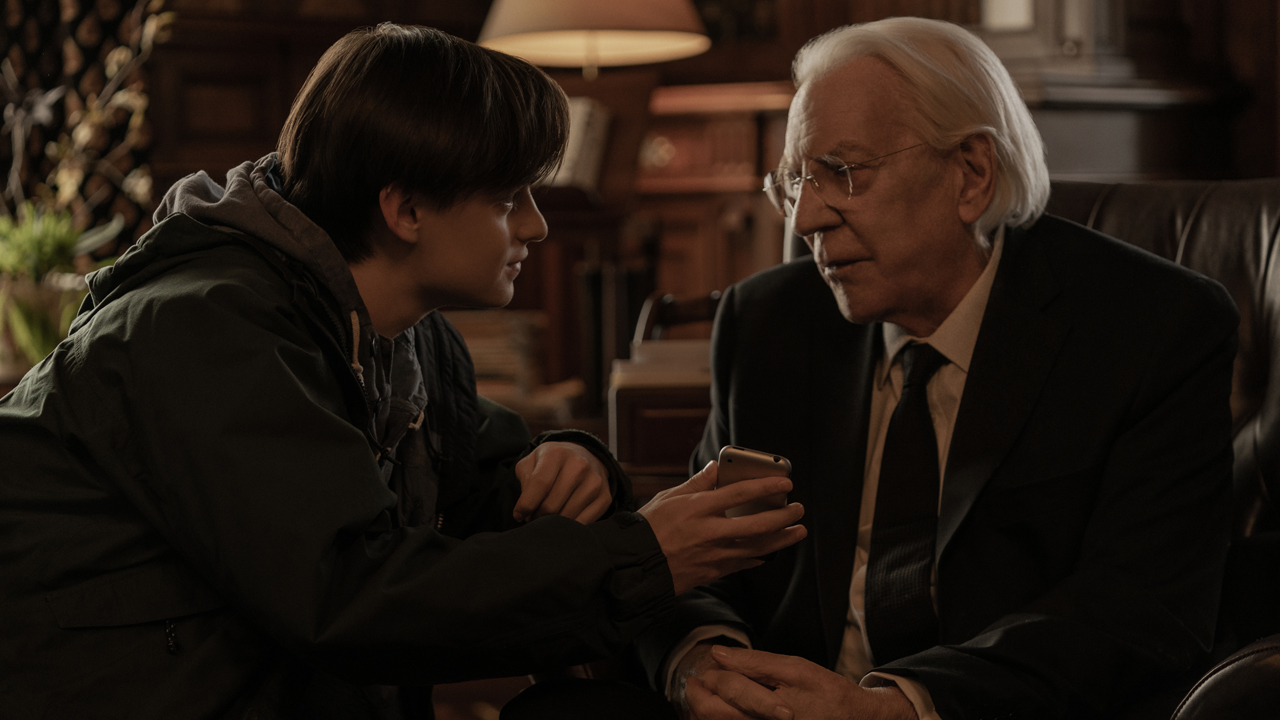
Is It Worthy Of The King?
When Stephen King got a look at an early cut of Mr. Harrigan’s Phone in August 2022, he definitely fell head over heels for it. Posting to his personal Twitter account, he called it “nothing short of brilliant.”
I have seen a close-to-finished cut of MR. HARRIGAN'S PHONE, written and directed by John Lee Hancock, and it's nothing short of brilliant. Donald Sutherland, Jaeden Martell. Netflix. This fall.August 12, 2022
I can’t say that I feel the same way, and part of that extends from the fact that the film is such a faithful adaptation. It’s easy to appreciate the characters and the special bond that is forged between Craig and Mr. Harrigan, but it’s not particularly cinematic. As I noted in my CinemaBlend review when the movie was first released, it tries to split the difference between being a coming-of-age tale and a horror story, but it never is able to accomplish being either one. Craig’s growth of the course of the narrative is pretty negligible, and it never manages to be effectively scary. Some spooky stuff happens, but John Lee Hancock doesn’t make any kind of overt effort to put a chill through his audience, and that’s disappointing.
Of the Stephen King movies that have been made for Netflix, it’s safe to say that Mr. Harrigan’s Phone is definitely the weakest one and the least interesting rewatch. Hopefully the adaptations of “Rat” and “The Life Of Chuck” end up being stronger and improve If It Bleeds’ legacy as source material.
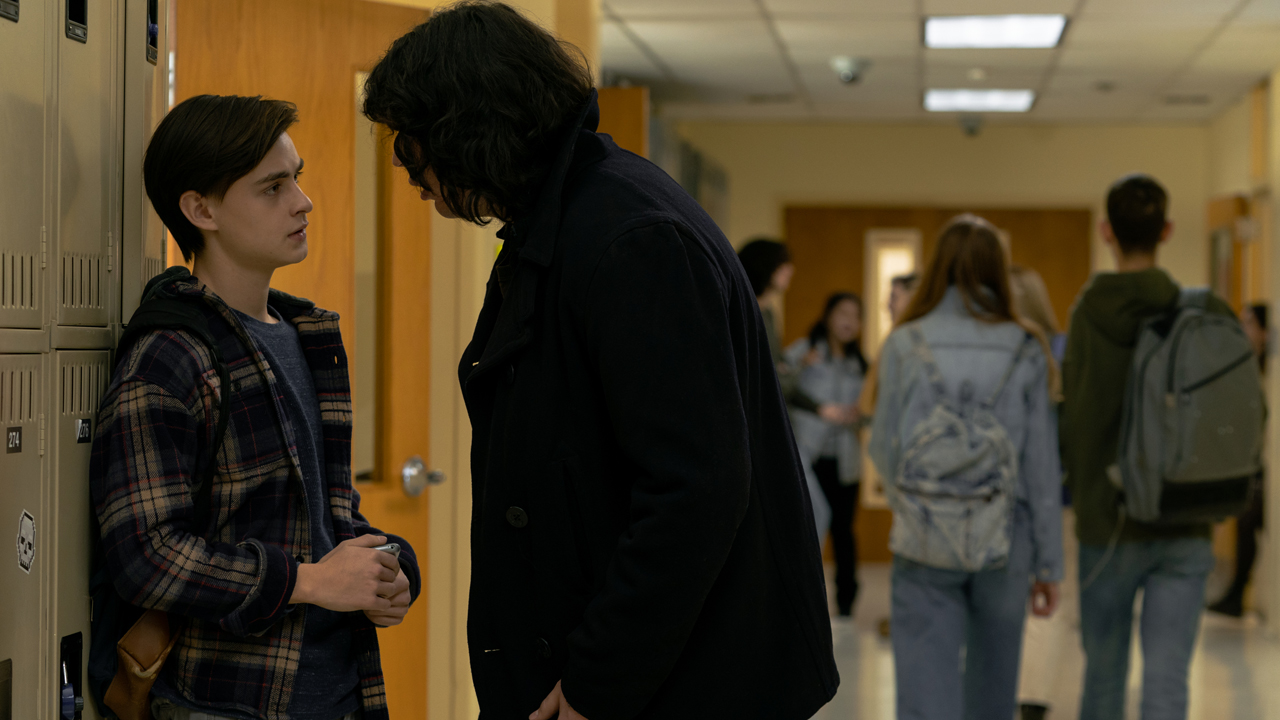
How To Watch John Lee Hancock’s Mr. Harrigan's Phone
John Lee Hancock’s Mr. Harrigan’s Phone was developed as a Netflix exclusive, and a Netflix exclusive it remains. Like Gerald’s Game, 1922, and In The Tall Grass, the movie is available on the subscription service, and on the subscription service alone. There are presently no known plans for it to be made available for rental or purchase on other digital platforms, nor do we know if it will ever get a physical media release to be added to an Ultimate Stephen King Collection.
This is normally the part where I tease the subject of next week’s Adapting Stephen King, but this is the end… for now. This column has been a chronological journey through the films and TV projects based on King’s novels, novellas, and short stories, and, as of this piece’s publication, Mr. Harrigan’s Phone is the most recent to be released. But I’m not done. One of the joys of being a Constant Reader is knowing that there always “more” right around the corner (just check the Upcoming Stephen King Movies And TV guide that I update regularly as proof), and it won’t be too long after the release of the next adaptation that this feature series will return. For now, thanks for reading – with special thanks to Kelly West for her weekly demonstrated editorial skills – and please enjoy all of the previous installments by clicking through the banners below.







Eric Eisenberg is the Assistant Managing Editor at CinemaBlend. After graduating Boston University and earning a bachelor’s degree in journalism, he took a part-time job as a staff writer for CinemaBlend, and after six months was offered the opportunity to move to Los Angeles and take on a newly created West Coast Editor position. Over a decade later, he's continuing to advance his interests and expertise. In addition to conducting filmmaker interviews and contributing to the news and feature content of the site, Eric also oversees the Movie Reviews section, writes the the weekend box office report (published Sundays), and is the site's resident Stephen King expert. He has two King-related columns.
